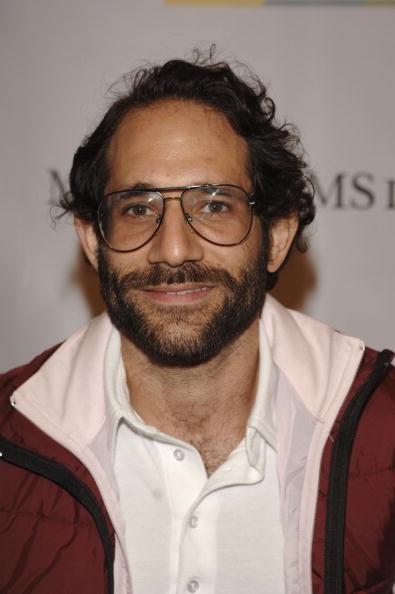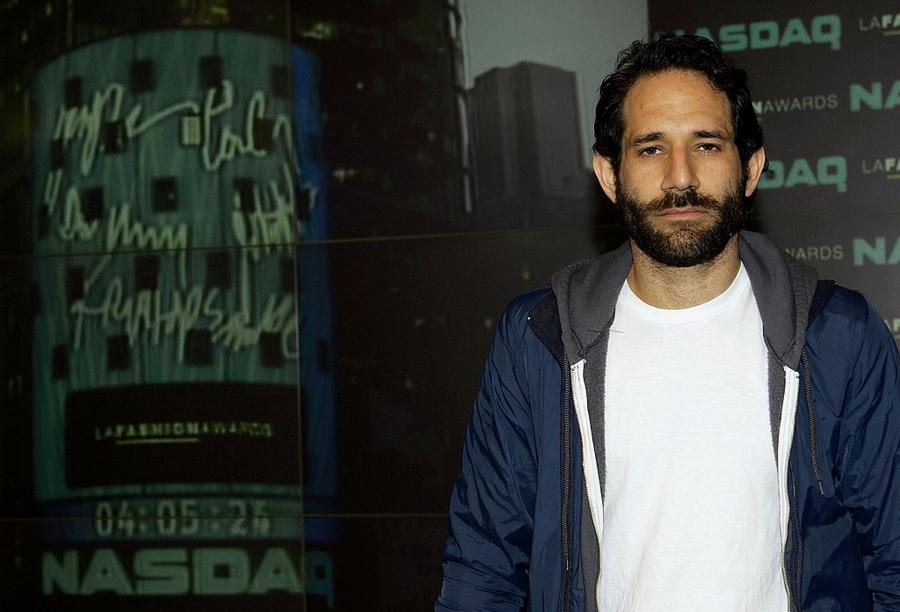What is Dov Charney's Net Worth?
Dov Charney is a Canadian businessman and entrepreneur who has a net worth of $500 thousand. Dov Charney is best known for being the founder of the American Apparel clothing line, which he founded in 1989. The company evolved from a small wholesale t-shirt business into a vertically integrated, U.S.-manufactured retail powerhouse by the mid-2000s. He gained acclaim for provocative in-house advertising, sweatshop-free manufacturing, ambitious progressive campaigns such as "Legalize LA" and "Legalize Gay," and rapid retail expansion, peaking at around 280 stores and nearly $634 million in sales. Despite this success, Charney became as notorious for his controversial leadership style, allegations of sexual misconduct, and legal entanglements, which the board cited when suspending him in June 2014 and formally firing him in December of that year. American Apparel filed for bankruptcy the following year.
As we detail in a moment, at his absolute peak, Dov Charney's net worth was over $700 million thanks to his 27% stake in the company, which was once publicly traded and had a peak market cap of $2.8 billion. In 2017, Dov claimed to be worth less than $100,000. However, there is some uncertainty regarding the current ownership status of a house in Los Angeles which Dov purchased in 2006 for $4.1 million. In May 2016, ownership of the home changed from Dov to "Apex Property Management LLC," but according to the actual transaction history of the home, the previous sale was Dov's 2006 purchase.
2022 Bankruptcy
In March 2022, Dov Charney reportedly filed for personal bankruptcy after allegedly failing to repay a $20 million loan owed to hedge fund Standard General, stemming from a failed attempt to reclaim control of American Apparel. The filing revealed that Charney faced up to $50 million in liabilities, including $30 million in claims related to his former company. His latest venture at the time, a vintage clothing store called Arya's Vintage Closet in Costa Mesa, California, also filed for bankruptcy. The dual filings were intended to pause debt collection efforts while Charney sought to reorganize and potentially finance a business recovery.
Loss of Wealth
When American Apparel went public in 2007, Charney owned 27% of the company (47.2 million shares). After the first day of trading, Dov's stake was worth $450 million. Wall Street had high expectations for the company, and within a few months, the stock hit an all-time high of $15.50 per share. At that level, the company as a whole was worth $2.7 billion, and Dov's personal stake was worth $730 million. Charney publicly proclaimed that he would soon be LA's newest billionaire.
Unfortunately (thanks largely to his own controversies), over the next seven years, American Apparel's stock price plummeted. In 2014, the stock frequently traded for less than 50 cents per share. At that level, Dov's stake sank to an all-time low of less than $18 million.
As the stock plummeted, Dov never sold a single share. In June 2014, he was suspended from the company. The following month, Dov handed his remaining 47.2 million shares to a hedge fund called Standard General with the goal of combining forces to reclaim control of the company. Using his 47.2 million shares as collateral, Charney received a loan from Standard General so he could buy an even larger stake in American Apparel. In December 2014, Dov announced that Standard General had double-crossed him on their deal. He also claimed at the time that he was worth less than $100,000 and was sleeping on a friend's couch.

Stephen Shugerman/Getty Images
Early Life
Dov Charney was born on January 31, 1969, in Montreal, Quebec. His mother, Sylvia, is an artist, and his father, Morris, is an architect, as is his maternal uncle, Moshe Safdie. His step-sister is journalist Shira Lazar. Dov attended Choate Rosemary Hall in Connecticut and St. George's School of Montreal. While studying in the U.S., Charney imported Fruit of the Loom and Hanes t-shirts to his friends in Canada. He told Vice Magazine that he transported the clothing on Amtrak trains, stating:
"I was buying 50 or 100 at a time, reselling them to my friends. Smuggling them into Canada and trying to make a dollar apiece. I also worked with my friends to sell them, so I was an employee of two of my friends. I was a street vendor. We'd get $50 each and we would sell the t-shirts."
After graduating from high school, Dov enrolled at Tufts University, but he dropped out in 1990.
American Apparel
After dropping out of Tufts University, Dov Charney borrowed $10,000 from his parents and launched American Apparel in South Carolina, initially operating as a small wholesale t-shirt business. He immersed himself in the mechanics of garment manufacturing and distribution before relocating the company to Los Angeles in 1997. There, he capitalized on the city's labor market and proximity to textile suppliers to build a vertically integrated operation, emphasizing domestic manufacturing and ethical labor practices, positioning American Apparel as a rare example of a large-scale clothing brand made entirely in the U.S.
By 2001, the company generated approximately $12 million in annual revenue. Two years later, Charney opened the first American Apparel retail store in L.A.'s Echo Park neighborhood, signaling a shift from wholesale to direct-to-consumer retail. The growth was explosive. By 2005, the brand had over 60 stores in the U.S. and Europe. By 2006, it operated more than 140 locations globally and was the largest t-shirt manufacturer in the United States. At its peak in 2009, American Apparel had 281 retail stores and employed thousands across its factories, warehouses, and storefronts.
The company's marketing was as distinctive as its business model. Charney's sexually provocative, lo-fi ad campaigns—often featuring non-professional models shot in candid poses—were both controversial and iconic, cementing the brand's image as rebellious, progressive, and unfiltered. American Apparel also embraced politically charged messaging with campaigns like "Legalize LA" (supporting immigration reform) and "Legalize Gay" (advocating for LGBTQ rights), making it one of the first fashion companies to explicitly fuse commerce with social activism.
But Charney's leadership was repeatedly called into question as numerous lawsuits and accusations mounted. In June 2014, the board suspended him, citing a pattern of misconduct, including alleged harassment and inappropriate workplace behavior. He was formally terminated in December. American Apparel filed for bankruptcy the following year, and after a second bankruptcy in 2016, its intellectual property was acquired by Gildan Activewear. The brand was eventually re-launched as an online-only label, but without Charney's involvement.
Los Angeles Apparel
Undeterred by his ouster from American Apparel, Dov Charney founded a new company in 2016: Los Angeles Apparel. Like its predecessor, the brand was built around domestic manufacturing, with a vertically integrated factory located in South Central L.A. Charney hired many of his former American Apparel workers and re-established the core principles that had defined his earlier success—ethical wages, made-in-USA sourcing, and fast turnaround production capabilities.
Los Angeles Apparel initially focused on producing blank apparel for screen printers, designers, and emerging brands. One of its major early clients was Kanye West's Yeezy brand, which helped the company establish a stable revenue base. By its second year, Los Angeles Apparel employed around 350 workers, and its facility included cutting, dyeing, sewing, marketing, and distribution operations—all under one roof.
The company gained national attention during the COVID-19 pandemic when it pivoted quickly to manufacture personal protective equipment (PPE), including medical gowns and face masks. Many of these items were donated to frontline workers across cities like Los Angeles, New York, Seattle, and Las Vegas. However, in mid-2020, the company faced a serious public health crisis when over 300 employees tested positive for COVID-19, resulting in four deaths. The Los Angeles County Department of Public Health temporarily shut down the factory to address safety violations.
Despite the setback, Los Angeles Apparel rebounded. It resumed operations with stricter protocols and continued expanding its wholesale and direct-to-consumer business. The company's product line now includes basics like t-shirts, hoodies, bodysuits, and activewear. In 2024, Charney announced plans to open the brand's first retail store in New York's SoHo neighborhood, signaling a return to the kind of bold, urban retail footprint that helped define American Apparel's original success. While Charney remains a polarizing figure, Los Angeles Apparel has positioned itself as a scrappy, second-chance venture built on the same ideals that first put him on the map.

Dov Charney / Mat Szwajkos/Getty Images
Controversies
Dov has been sued for sexual harassment multiple times, and each lawsuit was dismissed, settled, or sent to private arbitration. His lawyer, Keith Fink, stated:
"In many instances, cases were defeated or dismissed. In other instances, cases were settled because the insurance company, whose only goal is to save total dollars wanted to stop the legal bleeding on these cases."
In 2004, "Jane" magazine's Claudine Ko published an essay revealing that Charney began pleasuring himself while she was interviewing him. In a later interview with Ko, Charney stated, "The world sees my interaction with you as a lewd act…I'm a sensitive individual, and had I the impression you weren't enjoying yourself, it would've ended immediately. I took you very seriously as a reporter. But I think the lines between personal and professional got blurry. And that's it."
In 2011, Dov was sued by former American Apparel employee Irene Morales, who claimed that he kept her as a sex slave when she was a teenager. The lawsuit alleged that Charney had posted nude photos of Morales on the internet, and Irene's original lawsuit, which had been filed a month earlier, accused Dov of "forcing her to perform sexual acts in his Manhattan apartment under the threat of losing her job." The lawsuit was sent to arbitration in 2012 after the "New York Post" reported that Morales allegedly sent Charney several nude photos of herself, accompanied by suggestive messages, when she was no longer working for the company. Irene's allegations are reportedly what led the board of American Apparel to oust Dov from the company.
Awards
Charney received the Marketing Excellence Award at the 2005 LA Fashion Awards, and in 2008, he was named Retailer of the Year at the Michael Awards for the Fashion Industry. Dov was also a finalist for "Time" magazine's 2009 "100 most influential people in the world" list.
Real Estate
In 2006, Charney paid $4.1 million for a home known as the Garbutt House in the Silver Lake area of Los Angeles. The home was built by Frank A. Garbutt in 1923, and his fear of fires, floods, and earthquakes led him to build the house out of concrete (even the roof). The home includes steel doors and more than 20 rooms, and it was listed on the National Register of Historic Places in 1987.
As we stated at the top of this article, there is some uncertainty regarding the current ownership status of this property. If you look the property up on any real estate tracking service, Dov's 2006 purchase is the most recent legal transaction. However, in May 2016, the name of the owner of the home changed from "Dov Charney" to "Apex Property Management LLC. Today the home is estimated to be worth $6-7 million. Here is a video tour of the Garbutt House:
/2021/08/dov-charney.jpg)
/2014/06/Travis-Kalanick.jpg)
/2015/07/GettyImages-623863764.jpg)
/2019/11/GettyImages-472241102.jpg)
/2011/11/GettyImages-151304892.jpg)
:strip_exif()/2009/09/kanye.jpg)
/2021/06/bobby-bonilla.jpg)
/2015/08/Petra-Kvitova.jpg)
/2009/12/John-McEnroe.jpg)
/2014/02/nore.jpg)
/2023/05/Jimmy-Swaggart.jpg)
/2020/08/cusack.jpg)
/2010/02/Don-Johnson.jpg)
/2020/09/jamie.jpg)
/2009/12/GettyImages-187692591.jpg)
/2012/09/Robin-Wright.jpg)
/2020/11/Roger-Daltrey.jpg)
/2021/08/dov-charney.jpg)
/2009/09/kanye.jpg)
/2014/07/GettyImages-55982814.jpg)
/2014/06/Travis-Kalanick.jpg)
/2013/11/GettyImages-479944736.jpg)
/2015/07/GettyImages-623863764.jpg)
/2019/10/andrea2.jpg)
/2014/01/Forever-21.jpg)